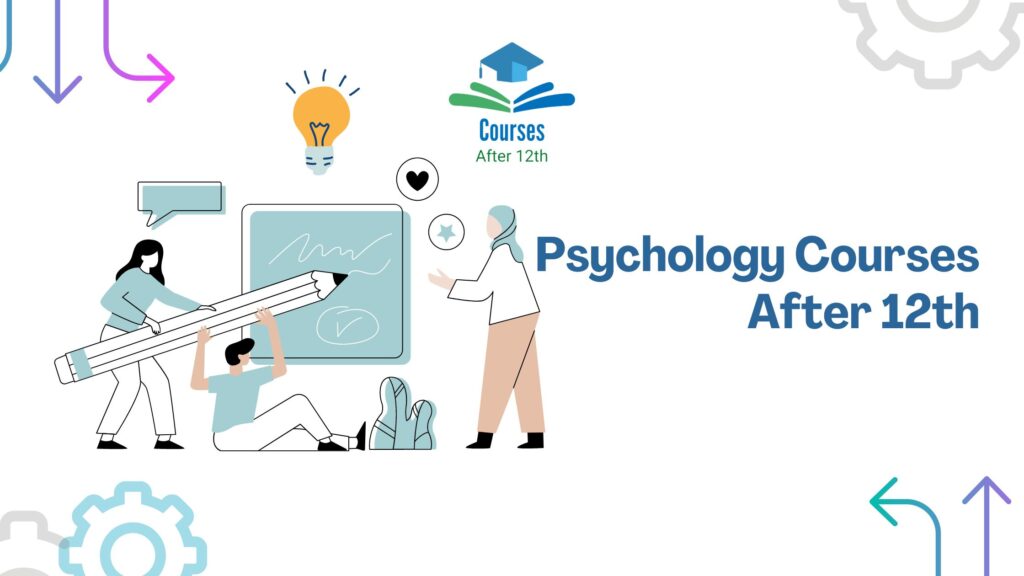
Choosing the right career path after completing secondary education is a significant decision that can shape the course of one’s life. For those intrigued by the complexities of the human mind and behavior, a career in psychology might be the perfect fit. The field of psychology offers a wide array of opportunities for personal and professional growth. In this article, we will explore various psychology courses available to students after completing their 12th grade, shedding light on the benefits, career prospects, and the overall journey of delving into the captivating realm of psychology.
The Fascinating World of Psychology
Psychology, often referred to as the science of the mind and behavior, is the study of the human mind’s intricate processes, emotions, cognition, and interpersonal relationships. With its roots deeply embedded in both natural and social sciences, psychology offers insights into what makes individuals tick and how they interact with the world around them.
Importance of Choosing the Right Psychology Course
After completing their 12th grade, students stand at a crossroads, facing a multitude of academic and career paths. Opting for a psychology course can be both fulfilling and rewarding. The first step is to select the right psychology program that aligns with personal interests and career aspirations.
Undergraduate Psychology Courses After 12th
- Bachelor of Arts (B.A.) in Psychology: This course provides a comprehensive overview of psychological theories, research methods, and practical applications. Students gain a broad understanding of human behavior and cognition, preparing them for diverse career options or further specialization.
- Bachelor of Science (B.Sc.) in Psychology: This science-oriented program delves deeper into the scientific aspects of psychology, emphasizing research methodologies, statistics, and experimental psychology. Graduates often pursue careers in research, clinical psychology, or academic fields.
Specializations within Psychology
- Clinical Psychology: If you’re passionate about helping individuals overcome mental health challenges, a specialization in clinical psychology might be your calling. Clinical psychologists work in hospitals, mental health centers, and private practices, providing therapy and counseling.
- Counseling Psychology: Similar to clinical psychology, counseling psychology focuses on helping people navigate life’s challenges. Counselors work with individuals, couples, and families, assisting them in managing emotional and psychological difficulties.
- Educational Psychology: For those interested in the education sector, educational psychology explores the psychology of learning and teaching. Educational psychologists develop strategies to enhance teaching methods and create positive learning environments.
- Industrial-Organizational Psychology: This specialization blends psychology with business, focusing on human behavior within organizational settings. Industrial-organizational psychologists contribute to improving workplace dynamics, employee satisfaction, and productivity.
Benefits of Pursuing Psychology Courses After 12th
- Holistic Understanding: Psychology courses provide insights into human behavior, enabling a deeper understanding of oneself and others, enhancing personal relationships and communication skills.
- Diverse Career Opportunities: Psychology graduates can work in various sectors, including healthcare, education, business, research, and more, allowing for career flexibility and growth.
- Contribution to Society: Professionals in the field play a vital role in addressing mental health issues and promoting emotional well-being, making a positive impact on society.
Career Prospects
- Clinical Psychologist: Clinical psychologists assess and treat mental health disorders, providing therapy and counseling to individuals or groups.
- Counselor: Counselors guide individuals through personal challenges, offering emotional support and coping strategies.
- Psychiatrist: While requiring a medical degree, psychiatrists diagnose and treat mental illnesses through therapy, medication, or a combination of both.
- Human Resources Specialist: Industrial-organizational psychologists contribute to HR practices by improving employee satisfaction, performance, and workplace dynamics.
- Researcher/Academician: Psychology graduates can pursue research careers, contributing to the development of psychological knowledge or teaching in academic institutions.
How to Choose the Right Course?
- Identify Interests: Consider your interests within psychology, whether it’s clinical work, research, or educational settings.
- Research Programs: Thoroughly research various programs, their curriculum, faculty, and available resources.
- Accreditation: Choose programs from accredited institutions to ensure the quality of education and recognition of your degree.
- Career Goals: Align your chosen specialization with your long-term career goals and aspirations.
Conclusion
Embarking on a journey into the world of psychology after completing the 12th grade can open doors to a fulfilling and impactful career. Psychology courses offer a deep understanding of human behavior, myriad career options, and the chance to contribute positively to society’s well-being. Whether you choose to become a clinical psychologist, counselor, researcher, or any other role within the field, the study of psychology equips you with the tools to explore the depths of the human mind while shaping your own future. Read more about Interior Design Courses After 12th to gain more knowledge for your career path.
Frequently Asked Questions (FAQs) about Psychology Courses after 12th
What is the minimum educational requirement to pursue a psychology course after 12th?
To pursue a psychology courses after 12th grade, you typically need to have completed your high school education. Most universities and colleges offer bachelor’s degree programs in psychology that can be pursued after 12th grade.
What are the popular specializations within psychology that I can choose from?
Psychology offers a range of specializations to cater to various interests. Some popular specializations include clinical psychology, counseling psychology, educational psychology, and industrial-organizational psychology.
What skills do psychology courses help me develop?
Psychology courses help you develop skills such as critical thinking, problem-solving, effective communication, research methodologies, and empathy. These skills are valuable in various professions and personal interactions.
Can I become a psychologist with just an undergraduate degree?
While an undergraduate degree in psychology provides a foundation, becoming a licensed psychologist typically requires advanced degrees such as a master’s or a doctorate (Ph.D. or Psy.D.) in psychology, depending on the specialization and country’s regulations.
What are the career prospects for psychology graduates?
Psychology graduates have diverse career prospects. They can work as clinical psychologists, counselors, school psychologists, researchers, human resources specialists, and more, depending on their specialization and interests.
